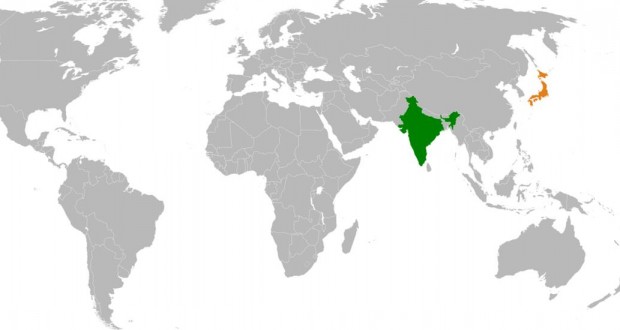Traditional equations in South Asia are shifting and the region is approaching a binary of US-India and China-Pakistan as the major local power blocs.
Read More »
Kalyani Subbiah July 28, 2016 Latest Articles, Security and Defence
Traditional equations in South Asia are shifting and the region is approaching a binary of US-India and China-Pakistan as the major local power blocs.
Read More »Davis Florick March 31, 2016 Latest Articles, Security and Defence
India and Japan have much to gain from cooperation considering that both seek to emerge as leaders in the Asia-Pacific region.
Read More »Anna Chisholm August 28, 2014 Asia and Pacific, Latest Articles
Delhi, 15th August 2014, Narendra Modi addressed the nation in his first Independence Day speech as Indian Prime Minister. The ramparts of the iconic Red Fort provided a familiar setting. However, the content of Mr Modi’s speech broke from tradition. Notable was his impassioned plea for a shift in attitude on the issue of violence against women – an issue that, by his reckoning, still brings shame to India
Read More »Dwayne Menezes August 16, 2014 Opinion, Religion and Politics, Religious Freedom
The fear of ‘appearing sectarian’ or ‘showing favouritism’ is the poorest, the weakest and the most appalling excuse for not speaking up for a persecuted group in a distant land that happen to share your beliefs.
Read More »Marc Simms July 10, 2014 Asia and Pacific, Latest Articles, Security and Defence
Last week, the Japanese cabinet undertook a significant shift in their country’s defence policy, by agreeing to reinterpret the constitutional limits on the use of force in a less strict manner. The new understanding of the restrictions of Article 9 now allow for Japanese “collective self-defense” as well as military intervention to protect its treaty allies.
Read More »Dwayne Menezes October 25, 2013 Asia and Pacific, Global Governance and Human Rights
Over the past week, Lithuania, Nigeria, Chile, Chad and Saudi Arabia were elected unopposed to five non-permanent member seats in the UN Security Council. Only a few hours later, Saudi Arabia, though hardly a state celebrated for its human rights record, rejected its seat
Read More » Human Security Centre Human Rights and International Security Research
Human Security Centre Human Rights and International Security Research